Crabby
Nov 11, 2024
Over the next several days, Zorione was as good as her word. She was frequently at the Salamander, although on a few evenings she had performances at other pubs in town, and whenever she was around she made a point of seeking out Ishtal to chat. At first hesitantly, but then more and more eagerly, Ishtal asked for stories of her mother and of Lehen Herria, and Zorione always obliged.
“I didn’t know Nahia well, not any better than I’d know any neighbor,” she’d often preface, but she’d still give some kind of anecdote, of the times Nahia had organized the other children of the village for a game, or of some minor mischief, or of when Arkaitz had first come courting her.
“They met when he came bringing a family over for a funeral,” Zorione recalled. “I remember seeing them dancing together. Even then, he looked at her like she’d planted the whole forest herself.”
“Am I like her at all?” Ishtal asked once. She’d asked Father a few times when she was small, but he’d been vague and inconclusive.
Zorione tilted her head in thought. “I don’t know that I can say. You’re in such a different situation than she was, after all,” she said. “But you move like she did, quick and light and careful. And she’d get that same look in her eyes sometimes, like she was trying to figure out a puzzle, that you do when you’re watching Kosya.”
Ishtal supposed that made sense. Kosef was starting to make more sense to her as time went on, but he, like any other ilegabeak, could be very strange sometimes.
Most of the time, though, Zorione was reluctant to talk about home, and preferred to tell stories of the places she’d been and the adventures she’d had there. “In some towns, they’d never even heard of Onena,” she said, “and in plenty of others, we’re just wives’ tales, figments of distant legends. I like spots like that: I get to educate them and refresh their memory a bit, and half the time, they’ll pay extra for the sheer novelty.”
Ishtal was confused as to where education came into it, and said so. Zorione laughed. “I don’t want us, our people, to be forgotten. I want outsiders to remember us, and our language, and what we were like—even if they don’t get it quite right. Partially in case we ever die out, which could very well still happen, but also partially in case our people ever come out of those forests in more than ones and twos.”
“We—they’re not going to just leave. Ever,” Ishtal insisted. “Not after what happened to our ancestors.”
Zorione didn’t look convinced. “That was a long time ago, and the world’s changed a lot since then,” she said. “You wait and see. Either enough of us will be exiled or choose to leave, and find out that the rest of the world has a lot to offer, or sooner or later people will think to go exploring through that forest and find us, and we’ll have to deal with them.”
Ishtal wasn’t at all sure about this, but she didn’t want to start a fight with possibly the only other member of her People she would ever see. So she let the subject turn to more neutral topics, and tried not to think about it. It wasn’t as though the issue was a terribly urgent one for her: she didn’t live there anymore.
Occasional disagreements aside, Ishtal thought Zorione’s arrival might have been the last thing needed to make her new life in Lozhapad perfect. Naturally, she knew it wouldn’t last forever—Zorione’s profession kept her on the move, and she’d mentioned more than once that she didn’t think she could stand to stay in one place for long—but she couldn’t help but hope that the entertainer would perhaps linger a little longer than was supposedly her habit.
What cut Zorione’s visit short, in the end, was something almost ridiculous.
At the start of the evening when it happened, nothing seemed out of the ordinary. The Salamander was packed to the rafters, as had become usual over the past couple of weeks whenever there was a performance on. A sizable portion of the audience weren’t even regulars, but had come after seeing Zorione at their usual haunt. Ishtal could understand the appeal: she’d seen all of Zorione’s performances at the Salamander, and no two of them had been quite the same.
On this particular night, Zorione was in fine form, bright and dynamic, ranging across the room, leaping onto tables or chairs or the bar and then back down as the mood struck her, encouraging people to clap and sing along. Ishtal’s singing voice was, in her own opinion, mediocre, but she still joined in on the chorus for the songs in Onena-speech, enjoying the feel of her native language rolling off her tongue again. She was so caught up in this, at one point, that she failed to distinguish at first between the normal chaos of the crowd and the escalating shoving match off to her left.
“Hey!” a burly, heavily bearded man barked at the person next to him. “Keep your mitts to yourself; there’s room enough for everybody in here.”
“I’ll put my hands where I want,” his neighbor, a surly half-elf, snapped in response. "Keep your hair out of my drink, cymysgryw.”
That was the part that fully caught Ishtal’s attention, as “mongrel” seemed like an odd choice of insult coming from a descendant of two different Peoples. It was clearly effective enough to make the bearded man bristle, and lean in still closer to his opponent. “Who says my hair’s in your pint o’ rainwater, anyway?”
“I do. It’s right there,” the half-elf contended, pointing into the depths of his tankard. “Can’t you see it, or is the light too strong for you?”
The bearded man leaned in, and the moment he was close enough, the half-elf flicked the tankard so its full contents splashed into the other man’s face. Then, for good measure, he dropped the empty vessel onto the man’s dripping head.
That did it. With a snarl, the man spat out a mouthful of ale and charged at the half-elf, sending them both flying into a hornpate who had been determinedly ignoring the conflict thus far. She whacked at them both with her tail, making them both madder, and the half-elf tried to grab hold of said tail in retaliation. He missed, and pulled at the skirt of a nearby goblin woman instead. She shrieked in indignation, drawing the attention of her (apparent) husband, who leaped into the fray.
At around this point, there was a commotion off to Ishtal’s right and further to the front of the crowd, and she turned just in time to spot the most trollish-looking human she’d ever seen stumbling forward from (as far as she could tell) a punch that his halfling neighbor had delivered to his kidney without warning. The ensuing bellow startled several and finally distracted Zorione enough for her to break off mid-note. She hesitated, and then a trio of people who’d been gleefully brawling with each other ever since the trollish man had stumbled into them crashed into her perch, knocking her into them and sweeping her into the fray.
Ishtal glanced around, trying to figure out what to do, and caught the flash of a knife out of the corner of her eye. She startled, but it wasn’t Plygiant or anyone else in Kraken blue, just a goblin clinging with his knees to a hornpate’s ribcage, waving a tiny dagger that…probably couldn’t do lethal damage. She reached out and caught his arm and gave it a disarming twist, even so, throwing the knife up to stick in a high beam where it couldn’t do any harm. Unfortunately, now the goblin was mad at her, and abandoned his vendetta against the hornpate to dive for her knees. To dodge, she had to stumble back into a human who was already taking swings at an unusually green-faced elf and was more than happy to try and punch her in passing as well.
She needed to get out of this crowd, that much was plain. The problem was, she was positioned smack in the middle of it, and any attempts to maneuver through the chaos would inevitably involve some kind of shoving action that would likely stir up the person shoved to pick a fight with her. Still, there was nothing for it, so she struck out in the direction of the corner by the bar and hoped for the best.
For the first few moments, she was lucky enough—she dodged a punch or three, and on the couple of occasions that someone raised a knife in her vicinity, she quickly disarmed them. But then somebody whom she hadn’t seen coming did manage to land a punch to the side of her head, and that made her stumble, and then trip over someone’s foot, and they retaliated by swinging a fist up at her torso that would knock the wind out of her—
—except that the blow was turned aside at the last minute, and the halfling who would have landed it was picked up by the scruff and deposited somewhere else, and then she realized Kosef was standing in front of her, frowning.
“Are you all right?” he asked, except that he had to say it twice, because the first time she couldn’t hear him over the clamor of the room and the slight ringing in her ears.
“I’m fine. Or I will be.” Ishtal glanced around. “We need to get out of this.”
Kosef gave her a look as if to say you think?, but didn’t actually speak the words. Instead, he gave a short nod, and pulled her nearer to him before starting to shove his way towards the edge. They ended up back to back, more or less, dodging and pushing their way through; Ishtal ended up deploying her claws a time or two to encourage someone to move. Then, after what seemed like forever but was probably only a few minutes, they made it into open space and ducked into the corner.
“There, catch your breath,” Kosef advised. “You handled yourself well, all things considered.”
“Does—” Ishtal rubbed at her head. “Does this kind of thing happen very often here?”
He considered a moment. “Usually not here. At the sketchier taverns, it’s more frequent, but the Salamander tends to stay quiet. Partially that’s because Gruul helps keep it that way, stopping things before they can start, but with a situation like this, he’d do more harm than good, and get in too much trouble besides.”
Above the tumult, a voice abruptly called out, “The watch! The watch is coming! Break it up, let’s get out of here!”
The effect was immediate. About half the crowd immediately disengaged from one another, streaming towards the door. Some, still dedicated to the battle royale, fought on, but they were rapidly diminishing in number.
Kosef caught hold of her arm. “Come on, we shouldn’t hang around. You’d better get upstairs, and I’ve got to get people together and figure out who started this, and why.”
A chill slid up Ishtal’s spine. “Do you think it was the Krakens?”
“Not everything that goes wrong has the Krakens behind it,” Kosef said. “But it’s my job to find out either way. Don’t worry. It shouldn’t take long to get to the bottom of things.”
Kosef ended up being right—it hadn’t been the Krakens who started the bar fight. The full story, as it emerged, was this: Zorione had been performing at a number of pubs across Lozhapad during her visit, and the only one she’d done more than one night at besides the Salamander was a place called the Crab and Slug. It was a riverfront establishment, catering to dockworkers and lower-income tradesfolk, and as such tended to attract a largely nonhuman crowd, much like the Salamander did.
“At a mostly-human tavern,” Zorione explained at one point, “I’m more likely to get catcalled, no pun intended. In a place like this or the Crab and Slug, where there’s a decent mix of Peoples, I’ll still be the odd one out, but it’s less likely that someone will decide to be rude about it.”
Unfortunately, she had evidently been too popular—regulars at the Crab and Slug who’d seen her there and learned that she would be performing at the Salamander had taken their custom to the latter establishment in order to see her show. The proprietor of the Crab and Slug had taken offense at this, and sent people to sabotage her next performance. From what the gossip network had been able to discover, the plan hadn’t been for things to get so out of hand, but they had nonetheless. It was going to take a good bit of time and work to restore the Salamander to its former state.
“It won’t happen again,” Marcienette said—for she was the one who’d ended up recounting all this to Ishtal, some evenings later. “Kosef and a few of the other enforcers had a chat with the fellow at the Crab and Slug, to get him to pay for the repairs to this place, among other things., I had words with him. He pays me to cover for his shady dealings on the side, and I let him know that if he pulled a stunt like that again, I’d leave him to the mercy of the city watch. I think that scared him even more than the threats from the men with the great big swords.” She sounded very satisfied about that.
Unfortunately, after the fight, Zorione had canceled her shows, and now announced that she was going to be on her way.
“I’ll be back,” she assured, as Ishtal watched her pack. “I always circle back to Lozhapad sooner or later—if I ever had to stay in one spot for some reason, it’d be here. But it’s best if I let things cool down for a while just now. It was getting to be about time for me to move on, anyway.”
Ishtal tried not to let it show how disappointed she was at Zorione’s departure, but the entertainer seemed to be able to tell anyway. “There now, don’t get weepy,” she said. “You won’t be alone here, you know. You’ve got good friends and people to look after you.”
“They’re not like us,” Ishtal managed. “They’re good people, but they’re not our People.” Despite the fact that Zorione was almost as different from her as it was possible to be, they had still both been born in the evergreen forest of the Onena, both grown up speaking the same language, both saw the world in the same colors and could hear and smell it in all its detail.
“Well, no, they’re not Onena,” Zorione conceded, “but that doesn’t mean that they can’t be our people. We’re exiles; our people can be whoever we want.”
Which was yet another statement that made no sense whatsoever, but by the time Ishtal could put her confusion into words, Zorione had already finished packing and swept out of Lozhapad in the same colorful, musical whirlwind that had heralded her arrival.
Soleil Demavie
Creator
Don't be crabby or sluggish - subscribe!
#ishtal #zorione #kosef #the_snarky_salamander
Recommendation for you
Shadow of the Dragons
1.4k views64 subscribers
Ishtal is sure her life is as good as over when her village banishes her.
All her life, she's believed that her people, the catlike Onena, would never be welcome outside of the small territory where they've isolated themselves. But when the involuntary kleptomania that's haunted her for years finally goes too far, she's given no choice but to leave and make her way in the world.
The good news? There is a place for her, with the Green Dragon Gang and their motley members who take her in with open arms. The bad news? A run-in with a rival gang ends up making Ishtal a target, and could put her new friends at risk. She's going to have to dodge assassins and the city watch, navigate the chaos of a city that's never truly peaceful, and (maybe) manage to control her wandering fingers if she's going to land on her feet.
Read on for found family, slow-burn interspecies romance, and criminal hijinks!
All her life, she's believed that her people, the catlike Onena, would never be welcome outside of the small territory where they've isolated themselves. But when the involuntary kleptomania that's haunted her for years finally goes too far, she's given no choice but to leave and make her way in the world.
The good news? There is a place for her, with the Green Dragon Gang and their motley members who take her in with open arms. The bad news? A run-in with a rival gang ends up making Ishtal a target, and could put her new friends at risk. She's going to have to dodge assassins and the city watch, navigate the chaos of a city that's never truly peaceful, and (maybe) manage to control her wandering fingers if she's going to land on her feet.
Read on for found family, slow-burn interspecies romance, and criminal hijinks!

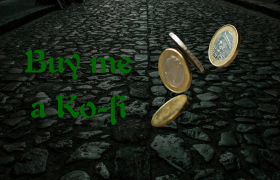
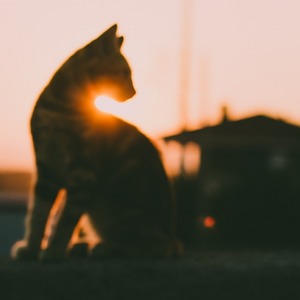
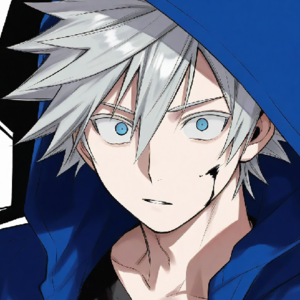







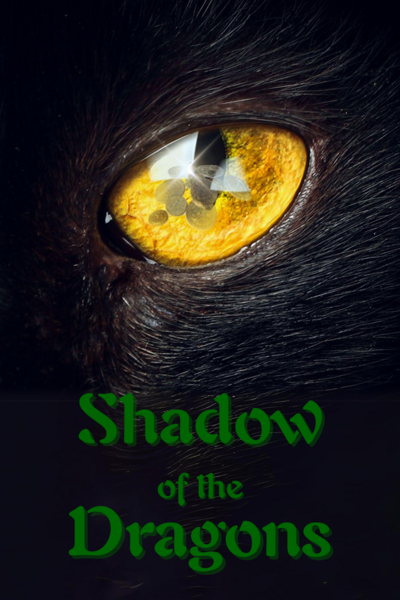
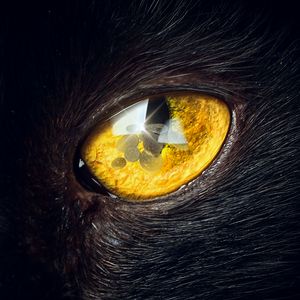
Comments (1)
See all